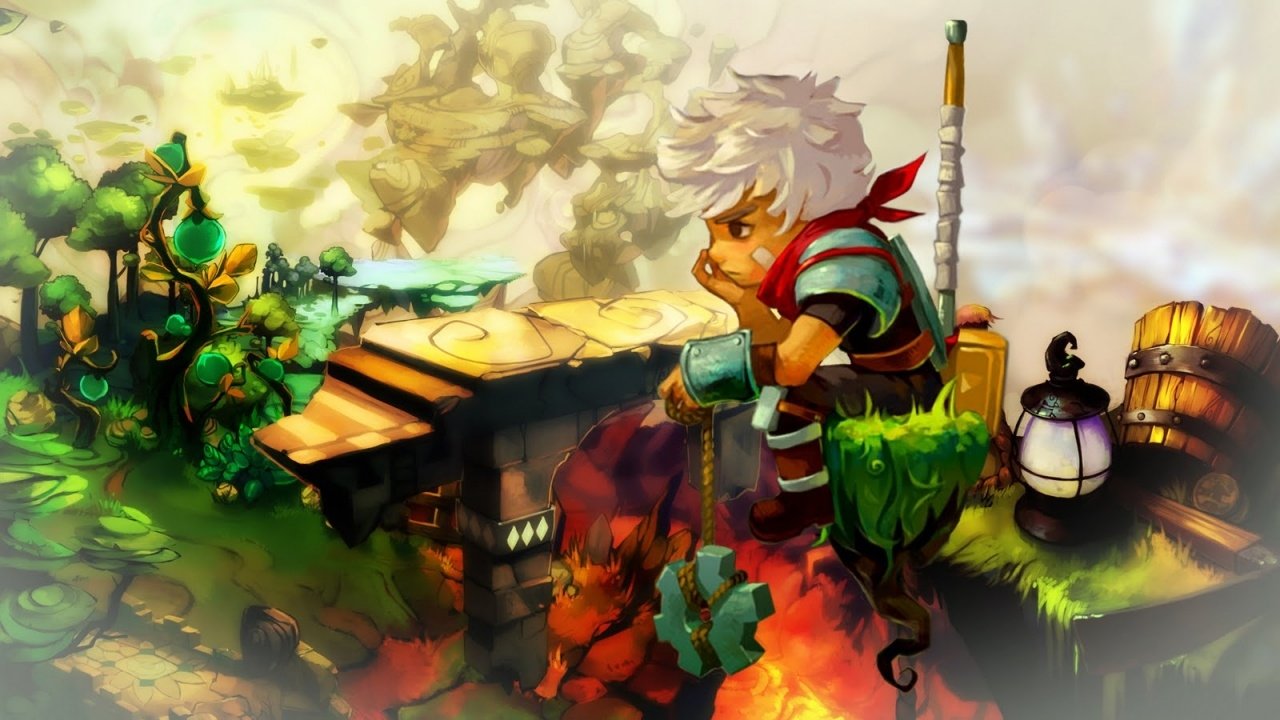There’s something to be said about being properly tricked. All of us, no matter how much we pride ourselves on being tough to fool, can be charmed by a well executed illusion. The best games do just this, giving us the tools we need to suspend our disbelief and let ourselves be well and truly fooled.
Bastion, from newcomer developer Supergiant Games, crafts one of the most novel illusions in games to date. Despite the overall quality of the rest of the title (the art and music are also exceptional), much of the initial thrill a player experiences comes from what is, in essence, a great parlour trick. Bastion’s narrator appears to know everything about what the player is thinking. Of course he doesn’t, but, because due attention has been paid to creating ample dialogue and clever scripting cues, the effect is fantastic.
This is most impressive during the game’s opening segment — if you make The Kid, the game’s protagonist, smash up crates for a while the narrator will describe it (“The Kid just rages for a while”); slip off a narrow path to have the voice describe the level’s treacherous footing; run away from enemies and that gets commented on as well. By opening up the title with a narrator who appears to be as much a part of the real world as his own constructed one, it isn’t difficult for the player to let themselves be fooled into investing themselves in Bastion’s fiction.
Why don’t we see more of this sort of thing?
“Immersion” is one of the games industry’s key terms. It pops up in countless reviews and developers are quick to use it to describe elements of their projects. Much of the work being done to “improve” games focuses on immersion. Some of it has resulted in little more than annoyance (like Quick Time Events or QTEs) while some basic innovations created entire genres (the first-person shooter is nothing if not a bold experiment in player immersion). As developers continue to move toward more immersive games, the tendency seems to be toward less intuitive design. Take motion control and 3D display: great novelties that quickly lose appeal when it becomes apparent that spasmodically waggling an arm around or marvelling at low-res projections do little to truly immerse a player in the world portrayed by a game.
Stunning technological applications don’t always translate to an increase in player immersion. Instead, we usually find real immersion through subtler cues — the kind that an entire project shouldn’t be marketed around. Grunts of exertion make a fistfight feel more authentic; a slight controller rumble can reinforce the power of gunshots; temporarily muffling a game’s sound underscores the violence of a huge explosion. We take these kind of innovations for granted now, precisely because they’re the sort of immersive features that worked well enough to effectively become industry standards (where applicable, of course).
Bastion shows that, even without a large team and/or budget, achieving immersion — always the videogame’s brass ring — is possible with some careful thinking on what the medium is already capable of. Its narrator is ultimately nothing more than a play on dynamic exposition, but Supergiant Games thought far enough outside of the box to bring this concept to a new place.
Everyone gets excited by seeing advanced technology. But, despite the brilliant minds and piles of money that go into that kind of creation, simply impressing players with shiny new things can actually end up feeling like something of a shortcut. Careful design that looks to build on what the medium has already established can (and often is) a more direct route toward player immersion.
Then again I could stand to be corrected. After all, I never have played a Virtual Boy.
***
Reid McCarter is a writer, editor and musician living and working in Toronto. He has written for sites and magazines including Kill Screen, The Escapist and C&G Magazine and occasionally updates literature and music blog, sasquatchradio.com.




